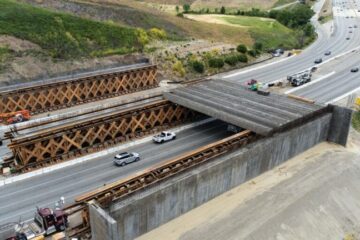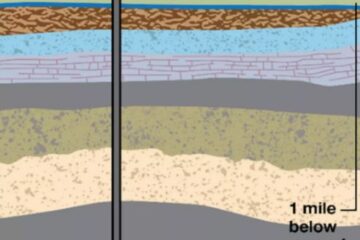Landowners left out of the loop on ‘fracking’ risks
Natural gas companies that use hydraulic fracturing disclose the risks, such as leaks, spills and explosions, to shareholders, but property owners aren’t privy, according to a report by the Environmental Working Group.
Source of this article: The Los Angeles Times, December 12, 2011
By Neela Banerjee, Washington Bureau

People protest against hydraulic fracturing in New York. (Andrew Burton, Reuters / November 30, 2011)
Natural gas companies that regularly use hydraulic fracturing to drill disclose the risks to shareholders, but not to landowners, according to a report released Monday.
As a result of disclosure requirements in federal securities law, some companies that have led the push into the mid-Atlantic and Northeast to use hydraulic fracturing have described to shareholders in explicit terms the potential dangers of their work, including leaks, spills and explosions. One company, Chesapeake Energy Corp., touted in its annual report in March that its efforts to lease land from private owners was a “land grab.”
At the same time, oil and gas companies and the land acquisition companies working for them did not mention to landowners the same potential safety and environmental risks, according to the report by the Environmental Working Group, a Washington-based organization that has been critical of the industry.
The report said a description by Cabot Oil & Gas, a major gas producer, in its 2008 form 10-K — a securities filing of the company’s performance — was typical: “Our business involves a variety of operating risks, including: well-site blowouts, cratering and explosions; equipment failures … pollution and other environmental risks.”
Hydraulic fracturing, commonly known as “fracking,” involves shooting water infused with chemicals and sand at high pressure into shale formations to tap reservoirs of natural gas.
Craig Sautner and his wife, Julie, said they were never told of any risks when they leased about 3.5 acres of their land in Dimock, Pa., to Cabot in 2008, the report said. After Cabot began drilling in the area in 2009, state officials determined that Cabot’s operations had contaminated well water used by the Sautners and 18 other Dimock families. Cabot disputed the finding.
The company did not respond to emails seeking comment on the report.
Jack Norman, chief executive of Elexco Land Services, a property acquisition company, told the report’s researchers that his company did not practice the same level of disclosure as expected in securities filings because the actual risk of gas field accidents was negligible.
“We believe the risk is very, very low,” he told The Times in a telephone interview from Pennsylvania. He added that companies reaped no benefit from such disclosure to landowners: “No one is going to go out there and say something like, ‘At one of every 10,000 of our wells, we may have an incident.’ No one will do it.”
Some landowners who have long experience with the industry criticized the report for implying that landowners bear no responsibility for finding out the risks of fossil fuel development. Jerry Simmons, executive director of the National Assn. of Royalty Owners, which represents landowners with oil and gas production on their property, said he was “flabbergasted” that landowners signed leases without taking the time to understand the implications.
“It’s almost offensive that people say, ‘I didn’t know what was going on and I signed it anyway,’ ” Simmons said in a telephone interview from Tulsa, Okla. “Especially if someone is pressuring you, shouldn’t that raise some red flags?”
Disclosure statements that companies make to shareholders are public documents, generally available online.
The report’s authors, however, said that “drilling companies clearly have a double standard” when discussing risk. “Shareholders are warned, but many landowners are not. This means that thousands of landowners may be signing legally binding contracts without understanding that their property, their health, their finances and their communities could suffer serious harm.”
The increased use of fracking has unlocked large new gas deposits in small towns and rural areas along the Eastern Seaboard but also touched off a debate about risks. Last week, the Environmental Protection Agency linked contamination of well water in central Wyoming to fracking.
Typically, gas producers and their agents lease land from private owners for a small sum and pay royalties on any production that occurs. Once a lease is signed, landowners have little chance of getting out of it and most can be unilaterally prolonged by the company.


